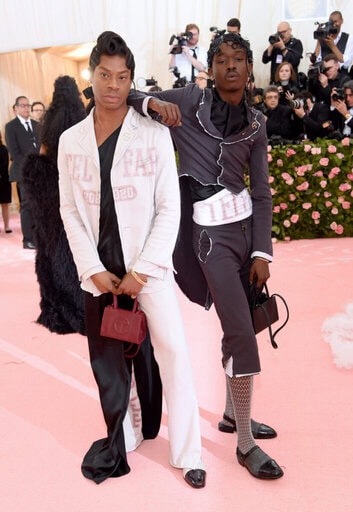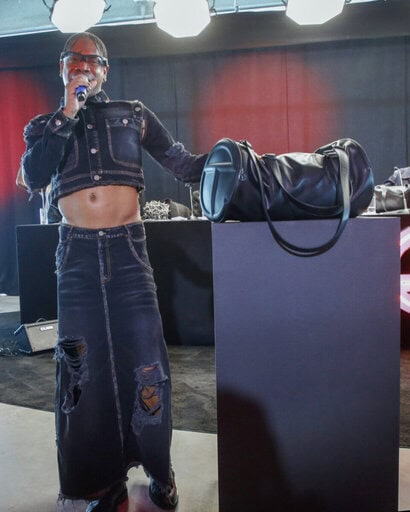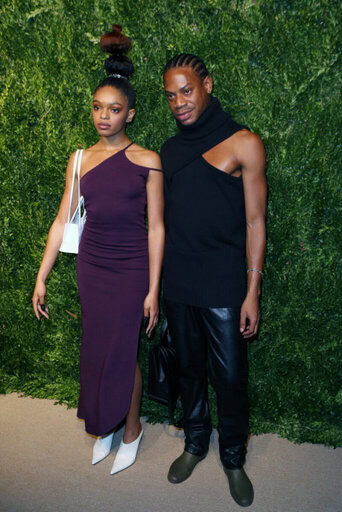With its luxury handbags, the brand opened doors for other Black luxury companies.
During my upperclassmen years at Clark Atlanta University, I remember the first time I saw a Telfar bag. Instantly enamored with the sleek and classy look, I immediately knew this bag would shift fashion, especially coming from an HBCU background fashion where appearances were significant in the culture. Not from a superficial standpoint, but to showcase Black excellence on campus.
When Telfar became the hottest bag on campus, it opened up a larger conversation about Black-owned businesses having a luxurious aura surrounding the brand.
Fast forward to my final years as a graduate student, Telfar has become one of the biggest Black-owned brands in the culture. You couldn’t walk around without seeing the bag on someone’s arm or even seeing it on television like when Issa Rae showcased the bag in an episode of Insecure. Many celebrities like Beyoncé, Zoe Kravitz, Selah Marley, and even Sasha Obama have been seen sporting the luxury bag changing the landscape of how far a brand can expand and grow in the fashion industry.
Nearly two decades following its debut, Telfar is introducing a new pricing model for customers that allows them to choose the cost of their items. Once a new collection is released, the price of the items will go from the original wholesale price to the retail price. Furthermore, when an item is sold out, the new process is that it will stay at the price it landed on for the next round of collections. The Telfar Live Price format begins during the weekly drops until April 24.

The price surrounding the bag became a significant conversation over the past years but allowed Black consumers to want to join the wave of having a luxury item made by someone who looks like them.
“There’s always been a level of exclusivity attached to luxury brands, and typically it has to do with price,” explained beauty expert and former InStyle editor Kayla Greaves. “Most high-end designer bags start at around $1,000 on the low end, which can make purchasing inaccessible for the average person.”
In the beginning, the price range of the bags stayed under $300, but in 2020, the popularity grew more robust, causing the company to introduce the bag security program. The new process allowed consumers 24 hours to pre-order bags and receive them months later, lifting the worry off their shoulders about sell out.
A year into the company’s newfound fame, shoppers discovered Telfar TV, a new channel on the app to see when accessories dropped to beat resellers. These new business models heightened the need for people to have the items and gave clientele the fear of missing out.
What Is The TELFAR?

Telfar Clemens, 38, is a Black queer fashion designer who grew up in Queens, New York, with a dream of creating a unisex and genderless clothing brand. He began his fashion house back in 2005, producing his unisex ensembles.
“I wasn’t allowed to have the clothes that I wanted to wear because sometimes we’ll be in the women’s section, and I would have to explain this whole thing to my mom, who’s actually paying, that I want this crop top,” he previously told CBS in an interview.
Clemens took matters into his own hands and became the change he wanted to see. By going into his community for himself, he hosted a plethora of pop-up shops during New York Fashion Week to get his name and brand out into the industry, and it worked.
TELFAR has grown into a company that offers luxury accessories from handbags that range from medium to large sizes in various colors like eggplant, corned beef, mustard, bubblegum pink and more – but that’s not all they offer. The company provides apparel from hoodies and hats to denim jeans all to curate a complete ensemble.
As people began to pay more attention to the brand and its popularity, the doors opened for different opportunities. TELFAR collaborated with brands like UGG, White Castle, and Eastpak for collections that stand out and marry the uniqueness between the handbag brand and the company they partnered with, showing consumers how versatile the brand has become.
It grew into a phenomenon that everybody wanted to be a part of because of the high-quality leather and fabric each piece contained and it became an archetype for future brands to follow.

“So many brands think that the key to success is to make their product ‘harder’ to buy — Telfar has proven that it couldn’t be further from the truth,” Style & Beauty Expert Blake Newby told Boardroom. “In fact, I think Telfar prioritizing making their bags accessible to everyone made it even more desirable. It displayed a vested interest in the consumer — not just profit and industry perception.”
A Symbol of Black Luxury
During society’s racial evaluation in 2020, many companies and consumers were embarrassed by the lack of support Black founders and business owners received. They knew it was time to make a change.
According to McKinsey, brands across price segments and categories have embraced digital direct-to-consumer channels. Brands will likely need to diversify their channel mix, including wholesale and third-party marketplaces, alongside direct-to-consumer models to grow.
The brand created that model from the ground up by giving Black buyers a place to feel like their dollars mattered and comfortable owning a luxury brand. “Telfar flipped this notion of exclusivity on its head by creating smaller quantities of high-quality, beautifully designed bags you can get for a fraction of the price,” Greaves added.
The amount of access consumers had to get their hands on the bag allowed TELFAR’s sales to go above and beyond as it showed people of all ages that they can be a part of the luxury era. In 2016 when luxury handbags noticed a shift in sales Telfar stood out, the brand earned $102,000, growing to earn $2 million in 2019 and continues to skyrocket even after it was projected that the fashion industry would see a 90% decline in sales during the pandemic.
“The traditional luxury industry has always had strict entry requirements and created barriers based on class, but Clemens ensures that everyone can access and enjoy his designs,” said beauty expert and ELLE beauty commerce editor Nerisha Penrose. “His efforts to foster a sense of community are evident through initiatives like hosting pop-ups at Rainbow stores in Brooklyn, implementing the Bag Security program, and introducing a new pricing tool that allows consumer demand to dictate the cost of an item.”

More Than A Trend
Public figures worldwide became fans of Telfar, showing that this was a movement in the making for Black luxury brands. On her latest album Renaissance, Beyoncé name-dropped the brand on her song “Summer Renaissance,” where she sang, “This Telfar bag imported/Birkins, them sh-ts in storage.”The line stirred up Twitter discourse and put even more eyes on Telfar.
According to Vogue Business, views of Telfar items on the resale platform TheRealReal spiked 85 percent globally on the day Beyoncé’s album was released. Other celebrities such as media moguls Oprah Winfrey and Issa Rae have highlighted Telfar on their platforms, creating hype for the Black market to want to support. In 2020, the bag was the third most desired item of the year, and searches for the brand have grown to 270 percent.
As Clemens watches his childhood dreams come to fruition, he designs for the future with the next generation in mind. “I think the scariest thing is people thinking that we are now at the top. And it’s like, no, this is the beginning,” Clemens noted in a 2018 interview with WWD.
“While this means the bag you’re eyeing may sell out in a flash, the anticipation has given our community not only something that feels accessible to the average person, but the drops are something we collectively look forward to. And when you finally get your hands on one, it’s something you’ll want to cherish and keep for life,” Greaves said.
As consumers continue to root for Clemens and his brand, the shift Telfar has created in fashion has become a beacon of hope for future fashionistas and business owners. This new pricing model projects the business to the next level for larger conglomerates to pay attention to the business moves Black founders are making in order to achieve success for their businesses.